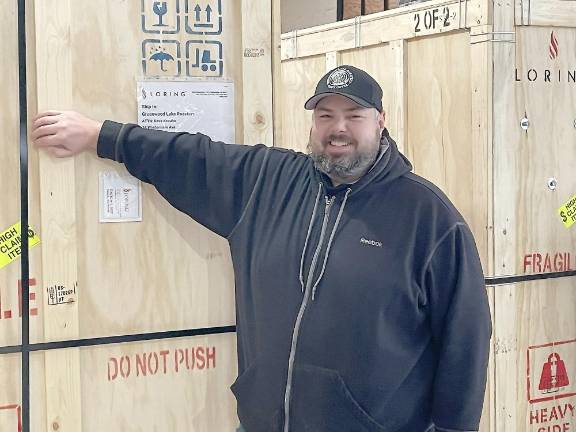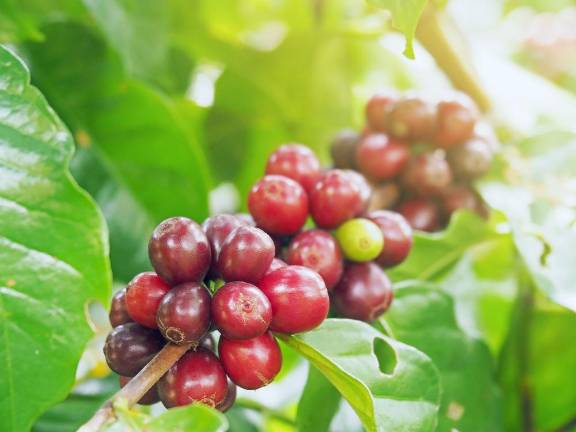Coffee bought, made and taught thoughtfully
Warwick. Dave and Yolanda Kozuha, owners of Greenwood Lake Coffee Roasters, have a new high end coffee roaster. They help customers become connoisseurs.


Dave Kozuha, owner of Greenwood Lake Coffee Roasters, is a certified organoleptic coffee judge. He regularly consults with dozens of farmers growing coffee beans in the equatorial region that lies between the Tropic of Cancer and Tropic of Capricorn. That area includes Central and South America, Africa, and Southern and Southeast Asia. He is familiar with hundreds of varietal beans from farms in Ethiopia (original home to the coffee bean), and he knows a thing or two about coffee.
Recently, Dave and Yolanda Kozuha welcomed the arrival of the new Loring® coffee roaster, a game changer for trained coffee roasters, to their new production facility on Windermere Ave. “This is like the Ferrari of coffee rosters in the world right now; there’s nothing better being built,” Kozuha said of his new roaster, made in Santa Rosa, California.
Loring’s system is a single gas burner that integrates heating for roasting and processing the exhaust, which eliminates the need for an afterburner, the unpleasant exhaust that had produced large amounts of CO2, saving energy at the same time. This reduces equipment costs, fuel, and environmental impact by increasing versatility and efficiency and decreasing CO2 emissions.
New Facility Features
Besides space for the new roaster, coffee bean storage, and “coffee cupping”--brewing several different coffees and allowing people to taste them and record notes about flavors and components-- the facility will offer classes. Consumers and members of the trade can take them to sharpen their ability to recognize and discern coffee flavor nuances.
“I’ll do some classes that people attend, and they can taste for citrus fruit, for example, because we get a lot of citrus notes in coffee. So we would try a bunch of different kinds of citrus fruit and explore just how an orange or a lemon juice that comes from the fruit as well as just the chewing on the skins or rind of the individual pieces of citrus fruit can affect flavor. There are all these different flavor profiles and then different ripeness levels in the fruit and different varietals of those fruits that help us build a knowledge base,” explained Kozuha.
“I evaluate coffee beans from all around the world, based upon the type of coffee I want to make. For example, do I want to make a blend that has more chocolatey notes, or more fruity notes, or floral notes, or more nutty notes?” said Kozuha. “I make sure that I have coffee beans available to me that will reveal the flavors, body, and aromas that will define that particular blend. Coffee beans prefer volcanic soil and higher elevations with warm, stable climates, and predictable rainfall.”
Greenwood Lake Roasters is 100% organic certified and every coffee they import must meet minimum standards of grading and certification. Even storage of the beans is critical. While most coffee beans are shipped in burlap sacs, Kozuha requires that farmers export their beans in hermetically sealed GrainPro® bags, which are then placed into burlap. This protects the beans from absorbing off flavors, humidity, and potentially harmful influences during shipping.
What began five years ago as a serious hobby for Dave and his wife, Yolanda, and made them quit their corporate jobs, has turned into a brisk business that orders thousands of pounds of coffee beans per week and serves customers a wide variety of coffee styles, prepackaged varietal coffee beans for grinding at home, and advice for the coffee aficionado. To learn more about Greenwood Lake Roaster, click on https://www.gwlrcc.com/.
To learn more about Greenwood Lake Roaster, click on https://www.gwlrcc.com/.